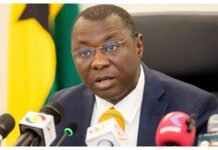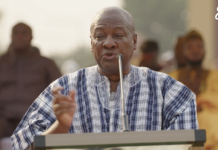
Ghana’s economic path to date has been marked by significant milestones, shaped by the policies and governance of two dominant political parties: the National Democratic Congress (NDC) and the New Patriotic Party (NPP). Both parties have had four terms each since the inauguration of the 4th republic on January 7, 1993, to manage the resources of our beloved country, Ghana.
In this article, I will delve into proven data on Ghana’s economic trajectory during the period of the National Democratic Congress (NDC), from the Mills-Mahama presidency/Mahama-Amisah Atta presidency to the stewardship of the New Patriotic Party (NPP) under the Nana Addo-Bawumia administration, highlighting notable achievements and challenges under each administration.
Prior to the NDC taking office in 2008, the economy bequeathed by former President J.A. Kuffour was in excellent condition, with all economic indicators heading in the right direction. The rate of expansion in all sectors of the economy was obvious to the public. Despite the lack of oil, economic growth increased from 3.7% to 9.1% between December 2000 and December 2008. Under the Mills-Mahama administration, the economy with oil had a growth rate of 7.9% at the end of December 2010, rising to 17.4% by the end of 2011. With this rate of increase in the oil-added economy, Ghanaians would have expected continued growth, but real GDP growth fell swiftly and persistently after 2011, reaching 2.2% in 2015. Between 2012 and 2016, the Mahama-Amisah Atta-led administration slowed the economic development of our beloved country, resulting in a 5% drop in GDP in dollar terms, with GDP per capita declining by 12%, which cumulated to an abysmal 3.4% in growth rate as of the end of 2016.
The Nana Addo-Bawumia administration inherited an economic crisis in 2017 with a GDP growth rate of 3.4% in 2016, but successfully turned it around to achieve a growth rate of 6.51% by 2019, making us one of the fastest-growing economies in the world. However, the COVID-19 pandemic, which had a devastating impact on the global economy as countries around the world closed their borders and imposed travel restrictions, caused a 3.4% decline in global GDP in 2020, equivalent to over $2 trillion in lost output. Despite this, the global economy quickly recovered, and GDP surpassed $96.3 trillion in 2021. Global economic growth is expected to grow gradually despite the impact of COVID and the ongoing war between Russia and Ukraine. For this reason, Ghana’s provisional GDP growth rate for 2023 is 2.9%, according to the Ghana Statistical Service, and it is expected to grow further by the end of this year.
Under former President John Dramani Mahama, Ghana’s economic woes were typified by negligent management of the government’s finances, particularly in the months preceding the 2012 elections. Under his presidency, the economy had a 12.2% GDP fiscal deficit at the end of 2012, 11.7% in 2013, and 11.9% in 2014. This plunged Ghana’s public finances into a deep fiscal hole following the reckless increases in public expenditure during the 2012 election year and subsequent years. This was the first time in the country’s history that double-digit fiscal deficits were recorded for three consecutive years. Due to this dire financial situation, inadequate policy execution, and lack of credibility, Ghana asked for an IMF bailout.
On the other hand, the Nana Addo-led administration, having successfully renegotiated and completed the IMF conditionalities under the government of H.E. John Dramani Mahama, requested an IMF-supported program in July 2022 because the country was facing an economic and financial crisis caused by inherent weaknesses and significant external shocks. The government of the New Patriotic Party has achieved substantial progress under the program, which the IMF Board approved in May 2023.
Increased fiscal deficits, which have since been reduced to 4% of GDP and public debt levels, combined with the effects of the COVID-19 pandemic, Russia’s war in Ukraine, and global monetary policy tightening, caused a drop in international investor confidence, resulting in a loss of international market access. This increased pressure on domestic finance prompted the government to turn to monetary borrowing from the central bank, which helped to support the government’s programmes and saved the economy from collapsing. The Ghanaian economy is now exhibiting indications of stabilization because of the government’s consistent implementation of an IMF-supported economic program aimed at restoring macroeconomic stability, ensuring debt sustainability, and laying the groundwork for higher and more inclusive growth.
To be continued…
Neil Owusu
Member, NPP National Communication Team




